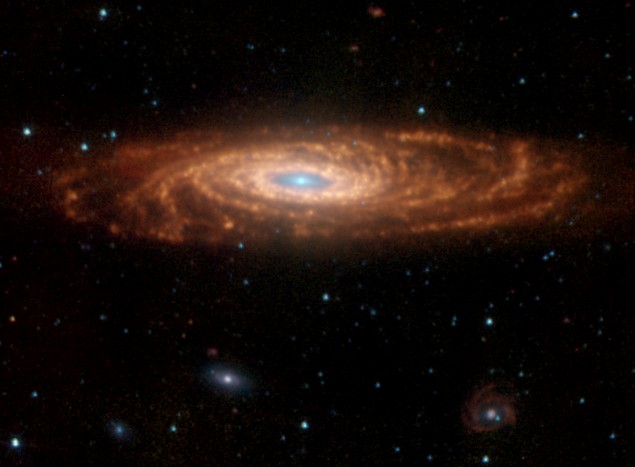NGC 7331: A Galaxy So Inclined

Explanation:
If our own Milky Way
galaxy
were 50 million light-years
away with its disk inclined slightly to our line of sight, it
would look a lot like large
spiral
galaxy NGC 7331.
In fact, seen here in a
false-color infrared image from
the
Spitzer Space Telescope,
NGC 7331 is interesting in
part because it is thought to be so similar to the
Milky Way.
Light from older, cooler stars, shown in blue, dominates the
central bulge of
NGC 7331, while Spitzer data also indicates the
presence of a black hole within this galaxy's central regions -
about the same size as the black hole at
our own galactic core.
Shown in red and brown, radiation from complex molecules associated
with dust traces NGC 7331's star forming spiral arms.
The arms span around 100,000 light-years,
about
the size of the Milky Way.
Curiously, a further
star forming ring is visible in yellowish hues,
20,000 light-years or so from the center of NGC 7331,
but it is not known if such a
structure
exists within our own galaxy.
News: Cassini to Saturn mission
update
Authors & editors:
Robert Nemiroff
(MTU) &
Jerry Bonnell
(USRA)
NASA Web Site Statements, Warnings,
and Disclaimers
NASA Official: Jay Norris.
Specific
rights apply.
A service of:
LHEA at
NASA /
GSFC
& Michigan Tech. U.

